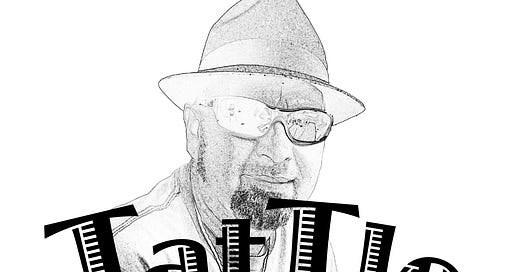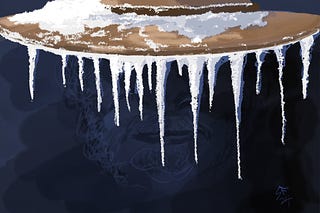‘How are you feeling now?’
‘A lot better, I think.’
‘That’s good. Heart rate slightly elevated, but that’s nothing to be concerned about in itself,’ said Dr Jim Barry, as she buttoned her flannel shirt. ‘Just a common-or-garden panic attack. Frightening for the patient, of course.’
‘Of course.’
‘… and you haven’t experienced symptoms like these before?’
Amélie shook her head.
‘Never.’
‘To be honest,’ Jim looked at her over the top of his wire-rimmed reading spectacles, ‘I find that remarkable. Considering the stress you’ve been putting yourself under …’
Here comes the lecture.
‘… but that’s your affair.’
Or not.
It had been a horrific experience. The inability to inhale, as if her lungs were suddenly two blocks of glass in her chest instead of living, fleshy bellows. The dizziness, the incomprehension.
Then, as she followed Jim’s calm, insistent instructions to breathe into the paper bag, and the stiffness and the certainty of imminent death subsided, came the humiliation.
All these people, friends and strangers – gawping at her. The pity in their eyes – and cold curiosity in some.
‘Show’s over, folks! Give the lady some space, please.’
Tom had been helpless, distraught.
‘Nothing to worry about, mate! We’ll just pop over to the surgery, give her a full roadworthy.’ This with a stage wink to Amélie. ‘No, you stay here and look after the stall. Nothing you can do and you’d only get in the way.’
The tiny weatherboard health centre was at the opposite end of the High Street from the Oval, only two minutes’ drive.
Now they sat in the quiet surgery, empty but for the two of them on this Sunday morning. Tigers memorabilia – a signed, framed guernsey and a poster of a bizarrely humanoid tiger – jostled for wall space with medical posters. She smelled the familiar mélange of spicy cologne, antiseptic and an indefinable but distinctive Jim-Barry-ness. The tock of the antique marble clock on the mantle marked the passage of the seconds, minutes. The surroundings calmed her jangled senses, soothed her mind.
Though this was the place she had received her death sentence, just four months ago.
She gazed out through the slats of the blind at the wooded hillside, searching for words.
‘I am going to tell him, you know.’
‘I know. In your own time. Your own way.’
‘Exactly.’
‘You might not have that much time, though, Amélie.’
‘No.’
‘As the disease progresses, the symptoms will be harder to control, harder to suppress.’
‘But we don’t know how long I’ve got. It could be years, couldn’t it?’
‘It could. Or months.’
‘Ha! Thanks for breaking it to me gently, Doctor.’
‘You’re welcome. It’s not like you don’t already know this.’ His smile was gentle, sad, softening the harsh words.
‘So Tom was asking about me, at the market?’
‘I said I couldn’t possibly comment … but that in itself …’
‘Was an eloquent comment.’
‘Quite. He already suspects, you know. He thinks you might be … seeing things. Things that aren’t there.’
‘Mm-hmm, I know … We had an intruder. Two nights ago.’
‘In your house?’
‘In our garden. I saw him clearly in the moonlight. Then we couldn’t find a trace …’
‘Ah.’
‘But that doesn’t mean he wasn’t there.’
‘No. It doesn’t necessarily mean that. Though it could.’
‘What if I told you I saw the same man today? Yet it was a stranger – someone I’d never seen before in my life. Except two nights ago on my lawn.’
Jim shrugged, looked at the floor for a moment. Sighed.
‘As we’ve discussed before … hallucinations are a common symptom, along with bouts of confusion. Déjà vu. In some cases, paranoid delusions and fixations …’
‘I’m not crazy, Jim.’
‘I know that, Amélie. But there may come a time when you’re a danger to yourself … and possibly to others.’
Tom had mentioned the shotgun, then? No, it seemed not. Jim’s expression hadn’t changed.
‘It’s all so unfair! We dreamed about this, yearned for this our whole adult lives. Worked for it, saved. A piece of land to call our own, where we could be self-sufficient. Decades making do with a tiny scrap of backyard in suburbia, a few hours scraped together from a busy working week to tend it. Kidding ourselves that a few fruit trees and bushes were a ‘food forest’. Keeping a little flock of chooks and fancying ourselves farmers. Then, just a few years in, the grand adventure is …’
He let her rant on for a while. When she had wound down:
‘Amélie, forgive me, but you have no idea how much unfairness there is in the world. How much unfairness I have had to dole out to people I held in regard and affection – sitting in that chair. There is a whole other category of unfair.’
This energetic, ebullient man in his forties suddenly looked ancient, his haggard stare turned inward. She found that she had reached out, clasped his hand in hers.
‘Sorry. I’m being selfish.’
‘No, you’re really not. It’s entirely understandable. But – this is what life is, Amélie. We choose not to dwell on it, but it’s always there … Anyway, let’s put your hubby out of his misery, eh?’
He reached for the phone.
As they drew up outside the house, Tom was unloading the last few boxes from the van. He greeted Amélie with a hug that threatened to squeeze all the precious air out of her again.
‘Doucement, chéri, doucement!’
After they had waved the doctor’s sleek, black BMW down the hill, Tom turned to her.
‘Holy hell, love. You scared the living crap out of me.’ Then: ‘What’s up, my darling? Please tell me what’s wrong.’
So she told him.
Next week in Telling the Bees:
Chapter 8: Inspection
Amélie’s bees require attention.
Disclaimer: The people and events described in this story are entirely the product of the author’s imagination; they bear no intentional resemblance to real-life people and events. The locations are based on real places.










